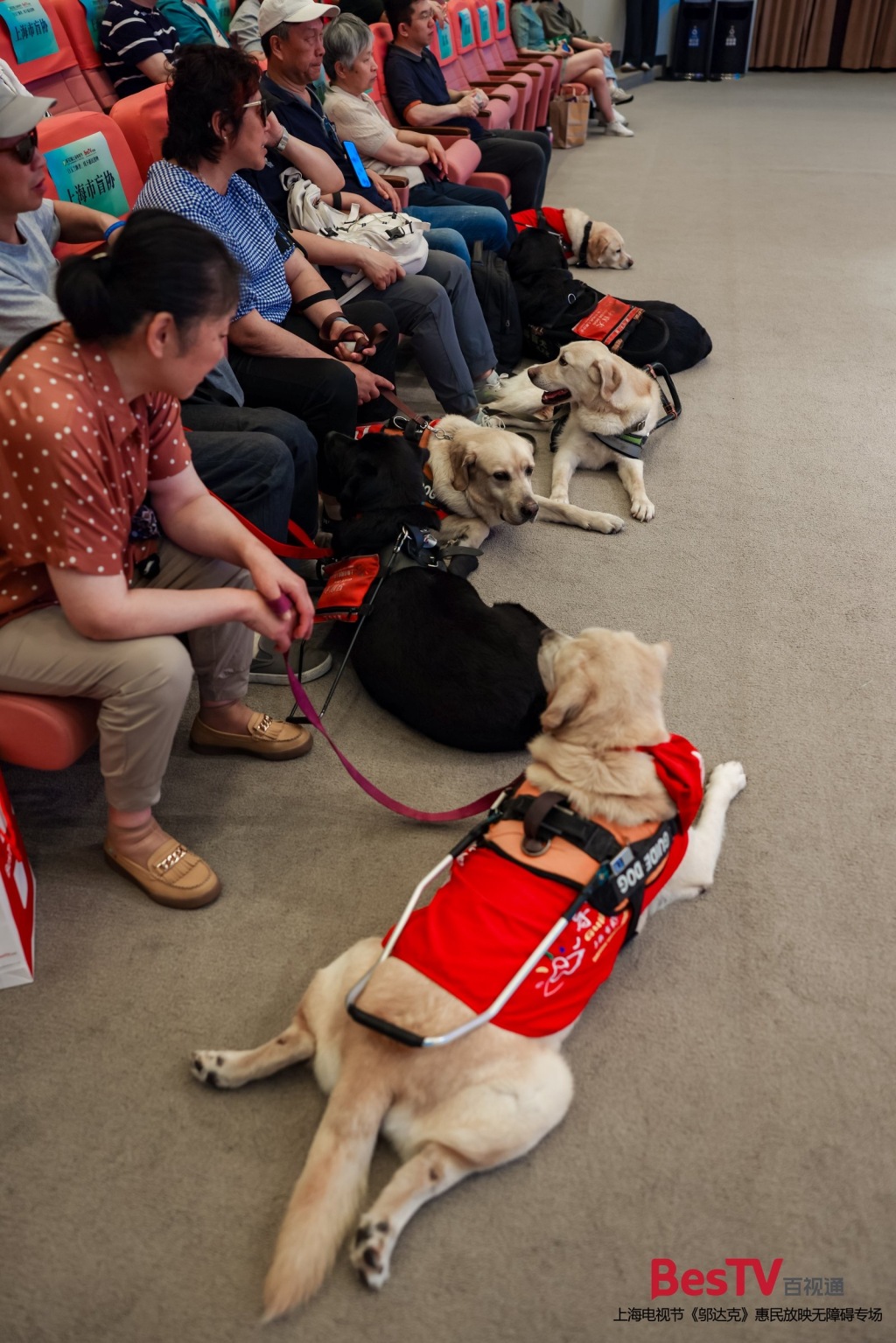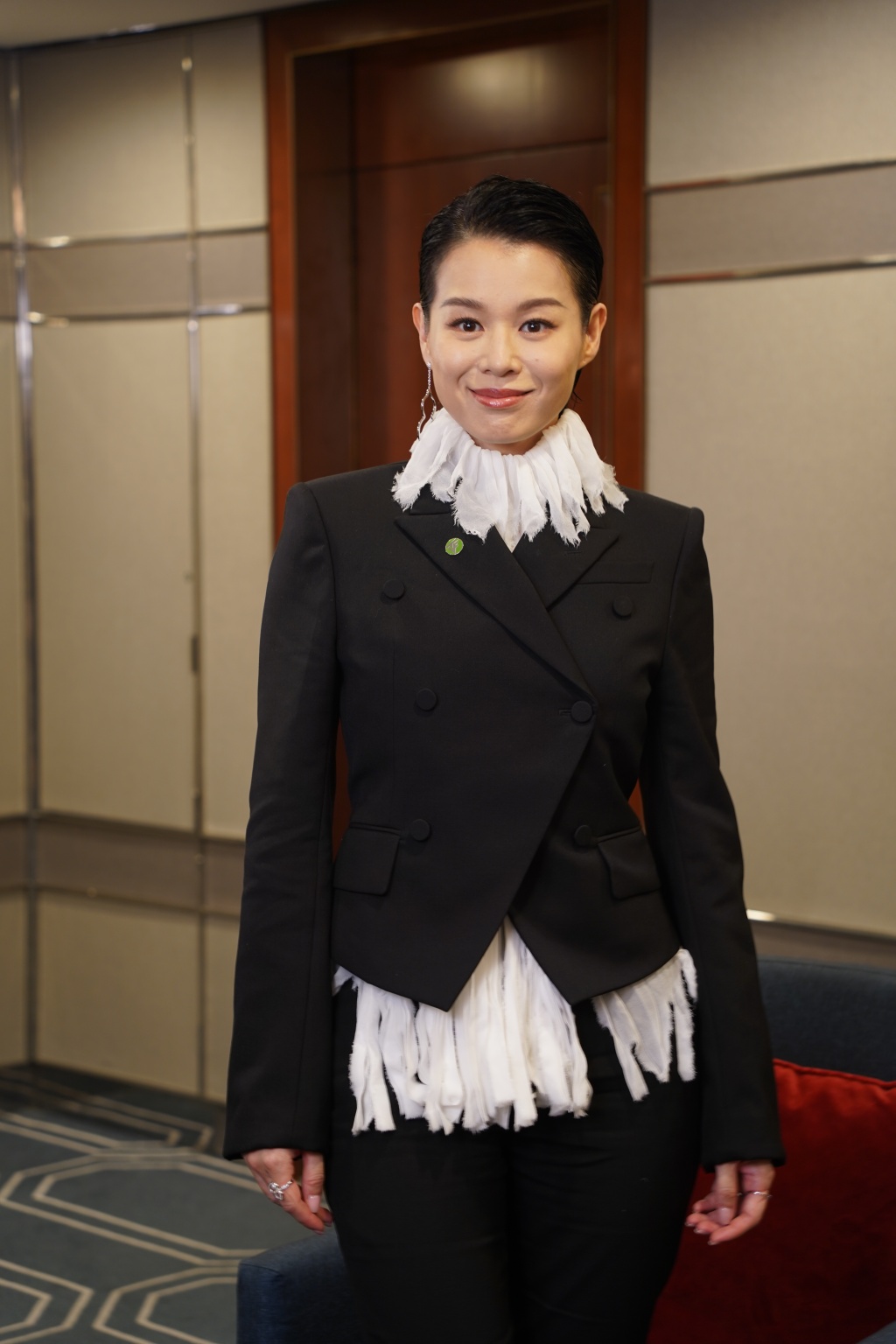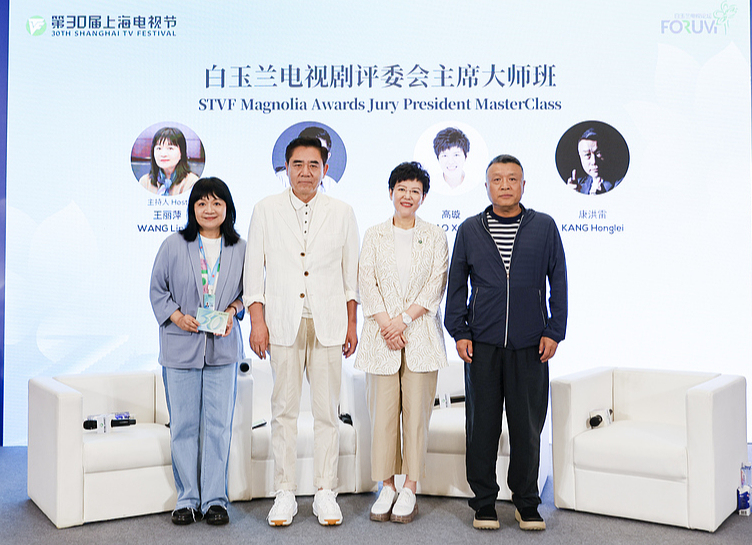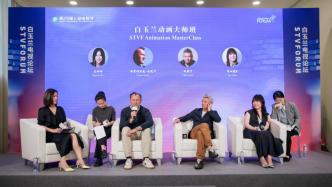
Animation, as a unique art form, vividly reproduces the richest imagination of human beings about the virtual world. On June 26, the 29th Shanghai TV Festival Magnolia TV Animation Master Class was held in Shanghai. French animation producer Mr. Frédéric Piech, Associate Professor Chen Liaoyu of the Animation School of Beijing Film Academy, and Japanese screenwriter and animation director Ms. Mari Okada came to the scene and sincerely shared their creative experience, insights and unique suggestions with their peers and the audience.
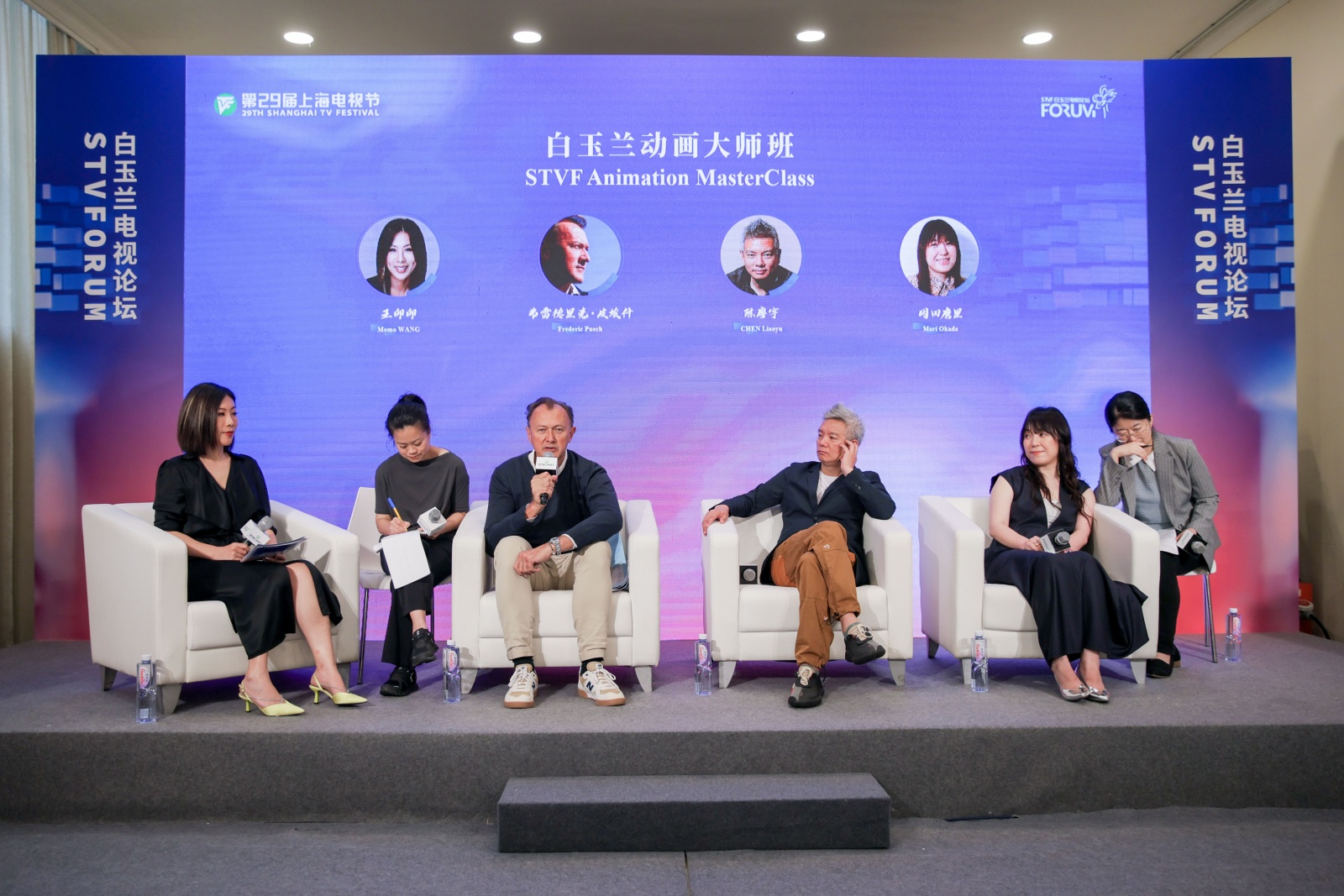
Magnolia TV Animation Masterclass
“Truth” and “Newness” in Creation
In terms of creative views, the three animators all mentioned "truth" and "newness".
Chen Liaoyu believes that the "truth" of a work can connect the work and the audience. He cited the short film "Shop" directed by Gu Yang and Liu Kuang in "Chinese Tales" as an example. "The first half of this film reflects objective truth and physical truth. Everyone sees the uncles, shops, uncles, and aunts in the alleys, as well as what the life scenes in the alleys are like. In the second half of the film, the elves and monsters in the alleys appear. When they express their gratitude to the uncles one by one like a party, this is of course imagination, but it is still a kind of fictional "truth" that reflects the emotional "truth." He believes that for the audience, this is an easy emotional resonance: nostalgia and remembrance for the hometown and old objects. "The front and back of this film interpret the physical "truth" and the emotional "truth". Only when these two kinds of "truth" are present, it will transcend the limitations of culture, region, and time and reach anyone's heart."
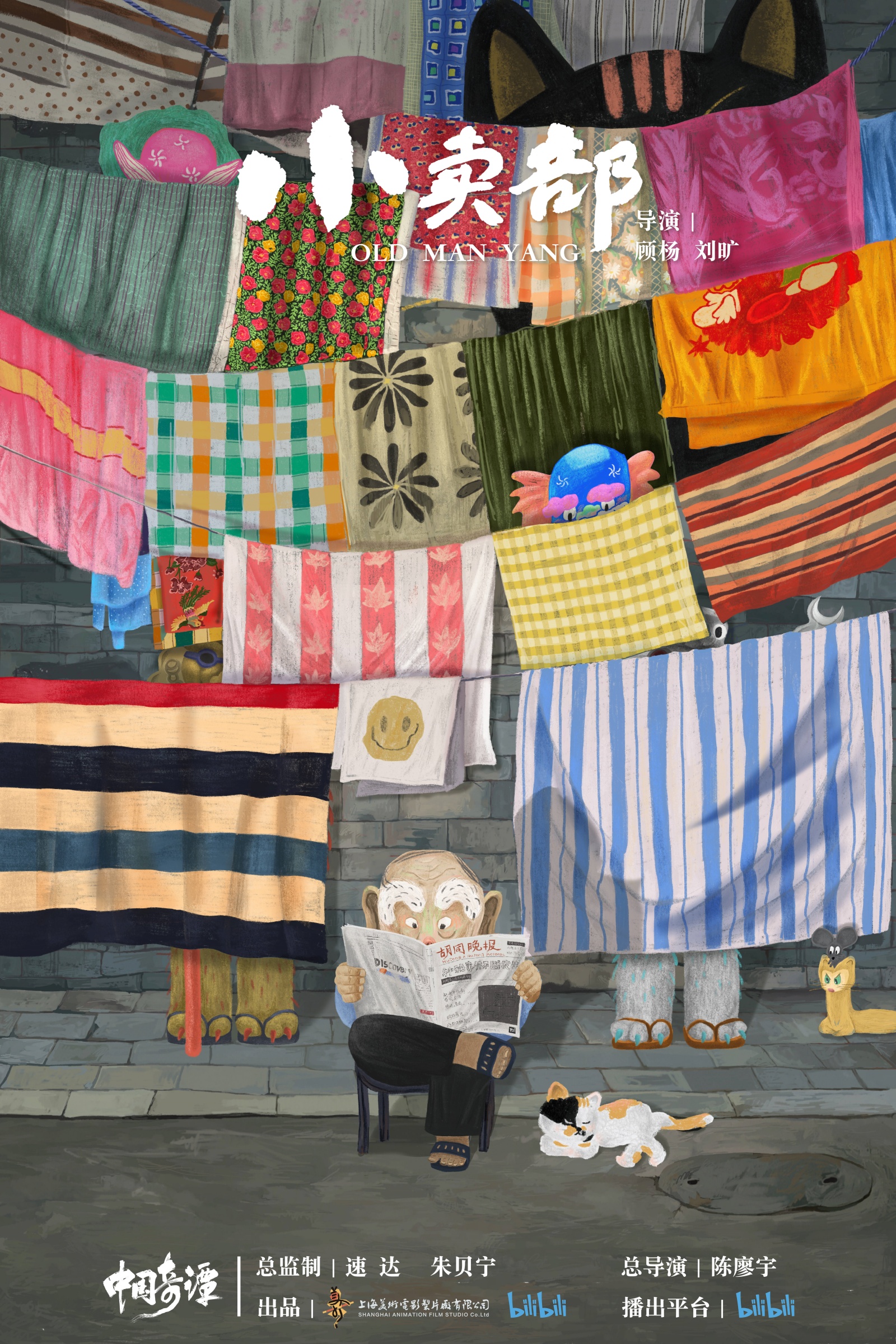
"The Little Shop" from "Chinese Tales"
Among Mari Okada's works, there are many creations with women as the theme, many of which depict stories between mothers and daughters, and many of which come from her real life experiences. She comes from a single-parent family and grew up with her mother. Looking back now, life was very difficult at that time, and these hardships may not be noticed by others. She herself would also think that everything might be like this. "But one day, I became a creator, and I could turn these past hardships and attention to women into more interesting stories, making myself and my mother the protagonists of the stories. I hope everyone can see that there are many difficulties in these hardships, but there is also a shining life."
Mari Okada said that what she particularly wanted to express in her work was people's most authentic feelings and emotions. "Expressing authentic emotions with authentic images may be a little boring sometimes. But as animation producers, we can create from 0 to 100, and we can create a very magical world, but the unchanging content is authentic emotions."
When it comes to innovation in animation, Chen Liaoyu believes that we should "trace the roots" as much as possible. "Try to trace your creative ideas back to the roots of the creation, that is, the work, the roots of your life, culture, and values." He suggested, "Don't think about what a similar work like yours is like, or what is popular at the moment. I have a concept that you don't necessarily have to learn from animation to make animations. You can find the source of your creation from literature, opera, drama, or anything else that interests you."
“The origin of something is equivalent to returning to an origin. When we stand at an origin, we find that we have a wide space and can go forward, backward, left, or right. But when you walk a long way along a line early on, the directions and distances you can choose are actually very limited.”
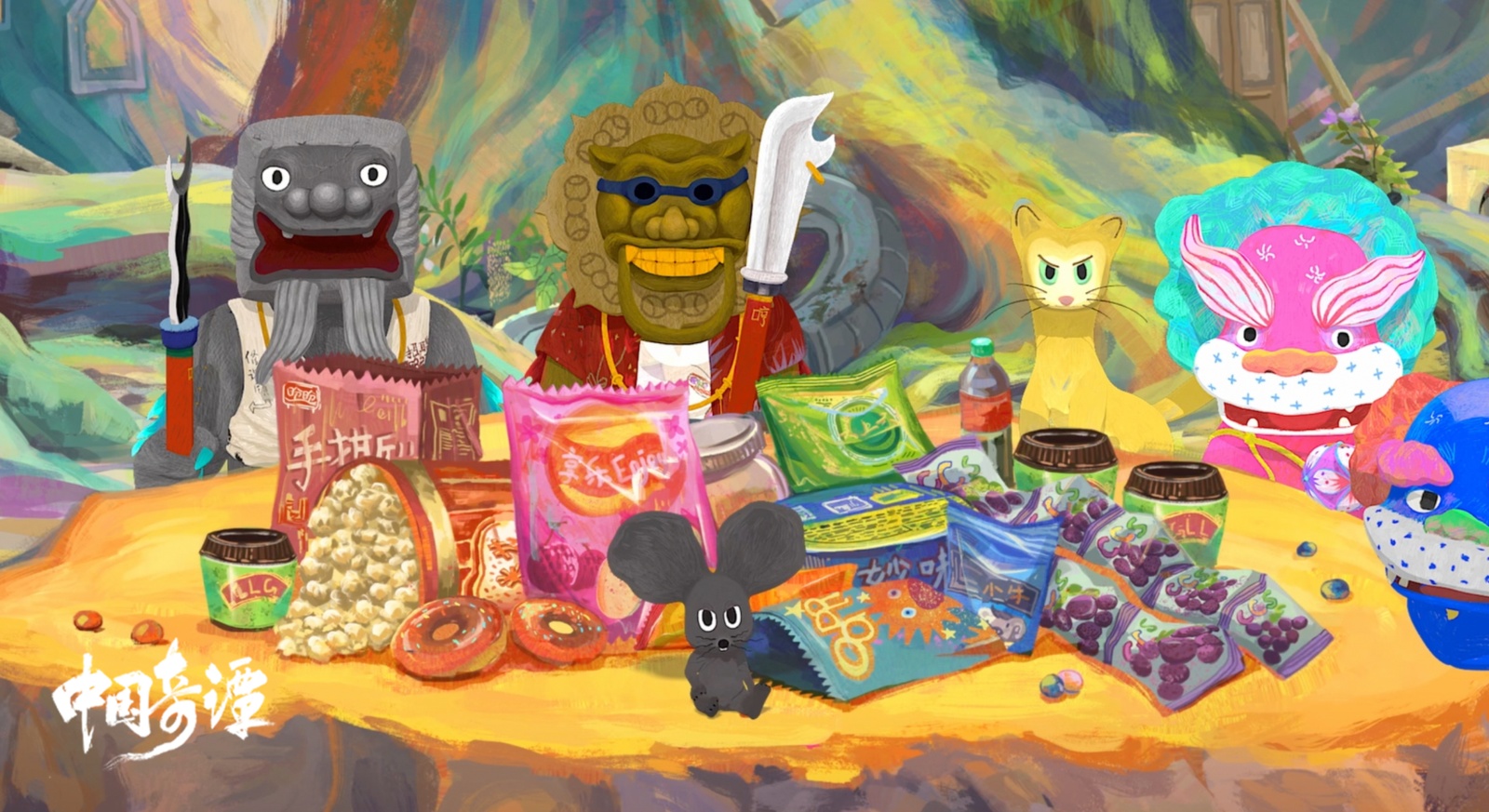
Stills from "Chinese Tales"
Frédéric Piech also said that in his principle of selecting animation projects, he attaches great importance to whether the project can arouse the curiosity of the audience and whether it has diverse cultural expressions. Chen Liaoyu took "Chinese Tales" as an example, saying that this is not a work made by summarizing and analyzing the market. Instead, it is a work that "follows the heart and original intention of each creator, as well as our understanding and ideals of animation." "One of the important original intentions of "Chinese Tales" is that we hope to explore the diversity of creation, and diversity also means risk." But this is the premise of innovation.
Mari Okada used the teamwork of animation to illustrate the possibility of innovation. "It takes a very large team to make an animation, and the encounters between people sometimes bring about wonderful chemical reactions." As a scriptwriter, she believes that working with different directors will create different sparks, and working with different teams will produce new stories. "Things involving multiple people will definitely create a lot of new and different things."
Stick to your original intention and be brave enough to "hit the wall"
"Don't ask me 'what I want'." When asked about his advice to young animators, Chen Liaoyu still cited "Chinese Legends". "Chinese Legends 2" is currently under development. Chen Liaoyu mentioned that many young animators have given them many stories. "First of all, I would like to express my gratitude to everyone. But I would also like to explain that some directors, after I rejected their stories, would ask me: What kind of story do you want? I cannot answer this question."
He believes that when young animators face rejection when they start creating, they tend to shift from realizing their own ideas to figuring out the other party's ideas. "But as the chief director, I never seek to satisfy my creative ideas during the entire collaboration process. Instead, what I fear most is that they start figuring out me. So my most important job is: when I find that the director is starting to lose confidence or forget the original intention of making this work, I have to help him get back to the starting point."
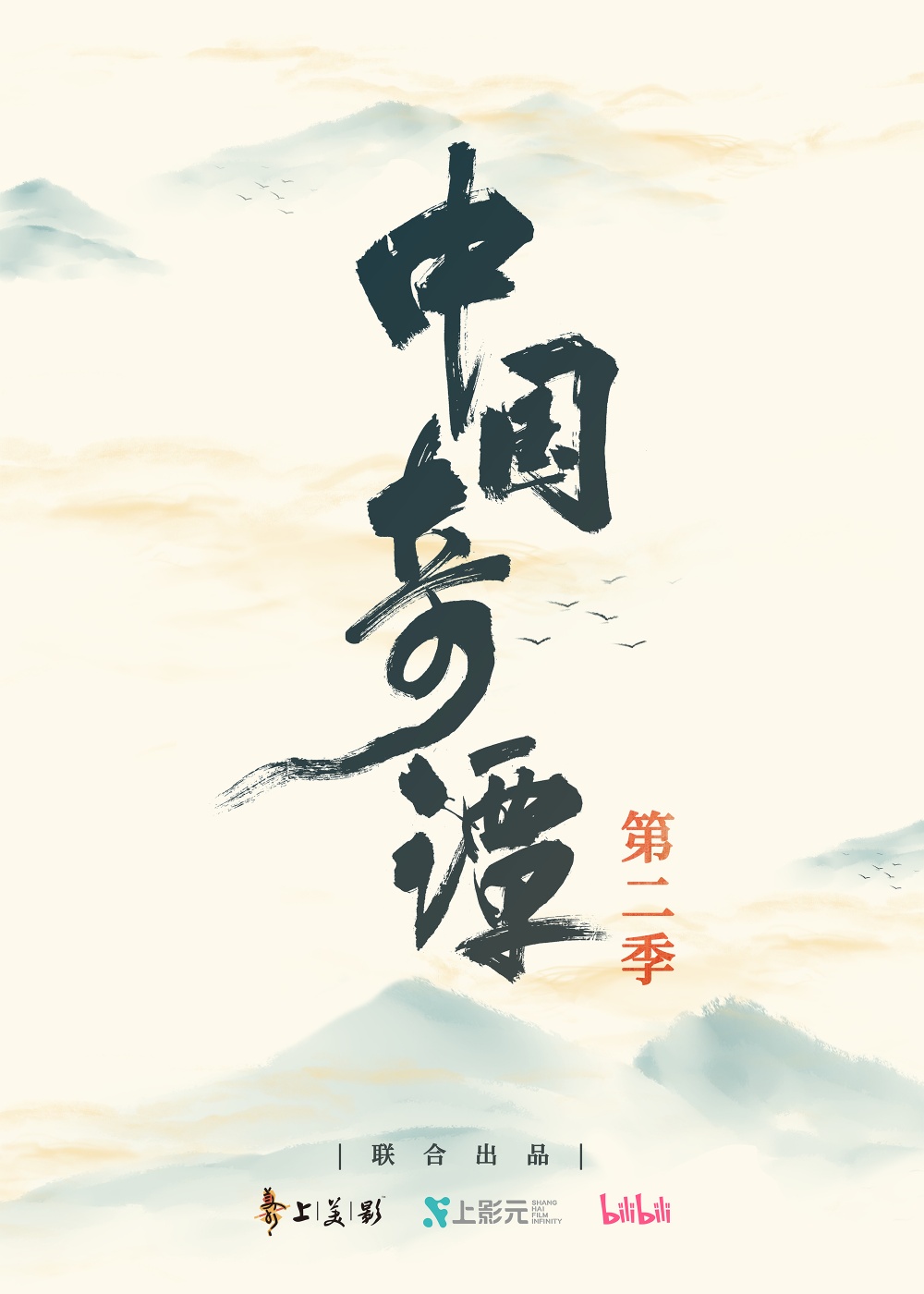
Poster of "Chinese Legend 2"
The host mentioned an anecdote. At the Shanghai Film Festival, she saw a young creator waiting outside the bathroom with his script, wanting to recommend his script to a producer. The three animators present could understand the creator's self-recommendation. Frédéric Piech mentioned his experience in entering the industry. He was not originally a graduate of animation, and in order to enter the industry, he tried to let people in the industry see himself and his work in various scenarios. "My advice is that everyone should not be afraid, and must bravely go out and let more people see their work, and have the courage to show their work to others. The worst scenario is that the other party is busy and doesn't want to pay attention to you. It doesn't matter, try to be polite, and try to seize the opportunity to show your work and establish more connections with the industry."
Chen Liaoyu laughed and said that he had also encountered a similar situation: when he looked up in the bathroom, he saw a celebrity he really wanted to meet. "In fact, I found that in that situation, people are the most real and relaxed, and no one wants to put on airs. If you don't believe it, try it. That's the moment when a person's defense is the lowest, so the bathroom is really a good starting point."
"Although my hair is all grey, I am not old enough to give advice to young people," he said. "On the contrary, I feel like I learn a lot from young people every day." If he had to give advice, he said that in the field of screenwriting and creativity, people are very concerned about protecting their own creativity and are afraid that others will steal their ideas. "But I personally think that if you are still a young person, you should think about this matter openly. First, there are not as many bad people in the world as you think. Second, even if I am deceived, what can I do? What will I lose? Can't I think of a better story? Just like Mr. Frederic Piech said just now, you should be polite, put aside your pride, don't be afraid of being denied by others, and don't be overly self-protective."
“You don’t know which cloud will bring rain, and you don’t know when your opportunity will appear. Maybe it’s really a small thing you least expect, a sharing session, that someone sees your shining point, and from then on, ‘the gears of fate start turning’. You don’t know where the gears are either. The only way is to do everything well, every opportunity well, show yourself bravely, and don’t overprotect yourself.”
Mari Okada also agrees with the courage mentioned by the other two. At the age of 19, she was a freelance script writer and had experienced many difficult things. She was deceived, scolded, and denied at work. "But no matter which step or opportunity you take, you should give more than 100% of your strength to the collision. Even if you hit a wall, it doesn't matter. Just change the direction and explore. After constant hitting the wall and exploring, one day, your path may be opened."
